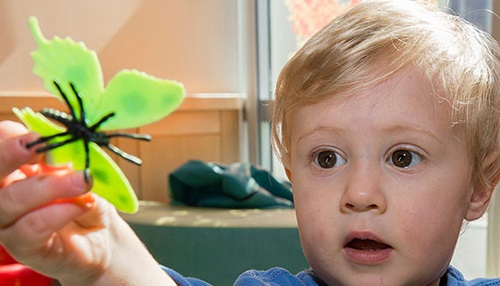Feed a Cold, Starve a Fever? The Truth about Medical Myths
Featured Expert
Medical myths about how to best treat fever, fight colds or manage injuries are everywhere, sometimes handed down through generations. Rachel Dawkins, M.D., from Johns Hopkins All Children’s Hospital clarifies fact from fiction.
Feed a cold, starve a fever?
False. Both fevers and colds can cause dehydration. It’s best to make sure kids drink plenty of liquids when they are sick. It’s also OK to eat if you have fever. Good nutrition may help keep your child from feeling as run down while they are sick. Also it’s OK to drink milk while sick. It does not cause phlegm.
Does green or yellow mucus signal bacterial infection or sinusitis?
False. The color of snot has nothing to do with the type of infection. This is probably the most common misconception. The color is dependent on dead white blood cells and how long they’ve sat in the nasal passage. Sinus infections should not typically be diagnosed based on color of snot. If you’ve been sick for more than 10-14 days then it’s a good idea to see your doctor.
If you go outside with wet hair, will you catch a cold or pneumonia?
False. Cold weather and wet hair don’t cause colds. Viruses do. It’s common to get colds in the wintertime because in most parts of the country people are stuck inside in closer quarters—unable to get away from the germs of sick friends or relatives.
Is fever dangerous?
False (for the most part). Fever is the body’s natural way to fight off infection. It does not melt the brain or cause brain damage. Fever is a symptom of an illness. Medicines like acetaminophen or ibuprofen can help comfort a child with fever but it won’t treat the underlying illness. No need to put the child in an ice bath or rub down with rubbing alcohol if they have fever. The exception is heat stroke. If your child is experiencing heat stroke that is a medical emergency.
Should you put butter on a burn to help stop pain?
False. This is actually the most dangerous of all the urban legends. Butter and other ointments trap the heat to the skin and can make the burn worse. If your child has a mild burn, run the injury under cool water and seek medical attention.
Should you keep a child with a head injury awake?
Not necessarily. First of all, if your child has a severe head injury or losses consciousness, seek immediate medical attention. If your child has a minor head injury, it’s OK for your child to go to sleep as they usually would. Waking a sleepy child or trying to keep a sleepy child awake only makes the entire family cranky. If your child is otherwise breathing and acting normally, let him or her sleep. Again, please call your doctor or go to the emergency room if you are unsure.
General Pediatrics at Johns Hopkins All Children's Hospital







